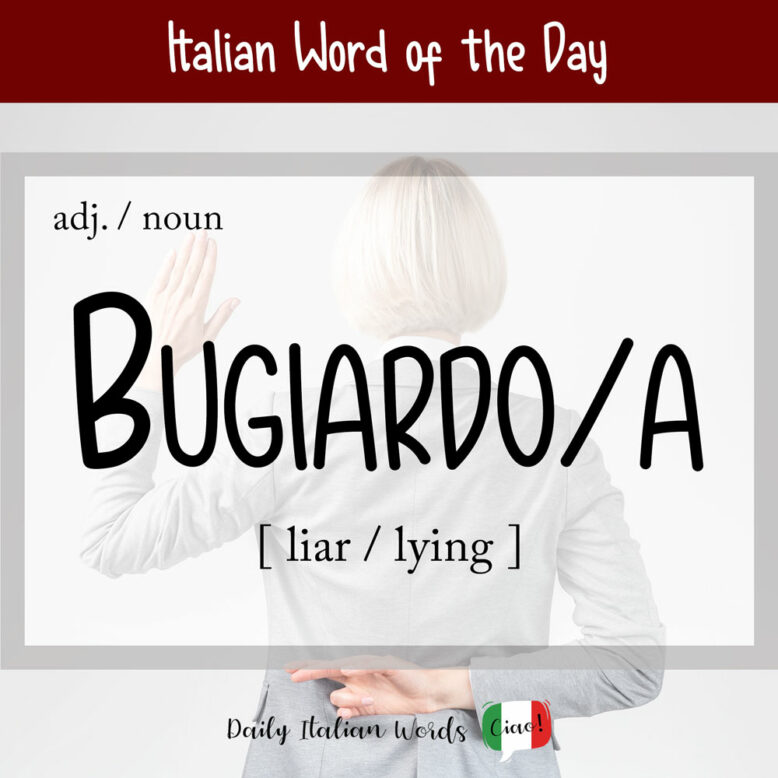The word for a person who habitually tells lies is bugiardo in Italian. The feminine form is bugiarda whereas the plural forms are bugiardi and bugiarde respectively.

It is a combination of the now-obsolete verb bugiare (to lie) and the suffix -ardo. (Note that the standard verb for to lie is mentire in modern Italian.)
Sei un gran bugiardo, lo sai?
You’re such a liar, you know?
Bugiardo, along with its feminine and plural forms, can also function as an adjective to describe someone who is lying, deceitful or untruthful.
Non credere a quell’uomo bugiardo.
Don’t believe that deceitful man.

Did you know that…?
Related to bugiardo is the noun bugia which means lie. The plural bugie is also what people from Piedmont and Liguria call chiacchiere, a typical Italian sweet prepared during the Carnival period!
Some possible synonyms for bugiardo include:
- menzognero (adj.) = lying, untrustworthy, deceitful
- mentitore (noun) = someone who habitually lies
- spergiuro (noun) = a perjurer (also the word for perjury)
- simulatore (noun) = someone who fakes or feigns (it also means simulator in technology and computer science)
- mitomane (noun) = someone with an abnormal or pathological tendency to tell lies
Italian proverbs featuring ‘bugiardo’
Chi è bugiardo è ladro.
Literal translation: He who is a liar is a thief.
English meaning: If you are willing to lie, you are capable of any kind of cowardice.
Il bugiardo deve avere buona memoria.
Literal translation: The liar must have a good memory.
English meaning: A lier must be careful not to contradict himself.
Chi è bugiardo in una cosa, è bugiardo in tutte.
Literal translation: A liar in one thing is a liar in all.
English meaning: A liar in one thing is a liar in all.
Il bugiardo conosciuto, da nessuno è mai creduto.
Literal translation: The known liar is never believed by anyone.
English meaning: The known liar is never believed by anyone.
Heather Broster is a graduate with honours in linguistics from the University of Western Ontario. She is an aspiring polyglot, proficient in English and Italian, as well as Japanese, Welsh, and French to varying degrees of fluency. Originally from Toronto, Heather has resided in various countries, notably Italy for a period of six years. Her primary focus lies in the fields of language acquisition, education, and bilingual instruction.


